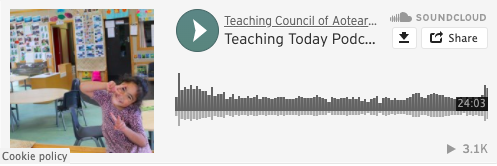Tapasā resources
A suite of professional learning resources to give life to Tapasā.
Documents and online resources
Download a digital copy of Tapasā
Quality Practice Template: cross sector examples for a QPT using a Tapasā lens
Download the Tapasā poster for your school, kura or centre
Online resource bank - find helpful links to online resources
Go to the Ministry of Education's Tapasā website
Podcast
Teaching Today Podcast: Nurturing Pacific culture and engaging with whānau/community
We visited Toru Fetū Kindergarten in Porirua – the first purpose-built Pacifica kindergarten in the country.
Last year they won a Prime Minister’s Education Excellence Award because of strong links with three Pacific communities: Cook Islands, Tuvalu, and Niue. Find out how the teachers nurture strong language and cultural identity in their learners and became the heart of the local community.
Workshops
Throughout 2019 workshops were held nationwide, co-facilitated by leading expert Pacific teachers and the Council. These free workshops were designed to help teachers build their confidence, competence and culturally aware practice to engage successfully with Pacific learners.
While workshops are no longer available the workshops resources can be used in any setting.
Tapasā supports different ways of knowing
This video shows Aurora College’s intentional practice of building strong relationships with their wider community with the resulting benefits for students’ social and academic learning. Listen to Antonio, Maleko and Oceania talk about how the course they completed strengthened their sense of connection and identity.
Tapasā and the power of Polyfest
Edgewater College leaders and students’ show how Polyfest brings multiple layers of success; students are reinforced in their cultural identities and receive credits for their work, their families and wider communities provide their cultural knowledge to the school and relationships are strengthened all round.
Tapasā: giving the document life
Hear the voices of leaders encouraging us to bring the document to life, to adapt our systems and structures to foster shared knowledge and listen to the stories of the people. Leitu speaks of how the framework can identify ways of developing our practice to include the voices of all.
Tapasā nurtures prior knowledge
You will hear Gina discussing with her team the importance of culture and making room for the diversity of knowledge, beliefs and values of the children in your classrooms/centres. Gina comments: "You don’t have to leave these things at the gate."
| Let's begin to talanoa... | Helpful links |
|

